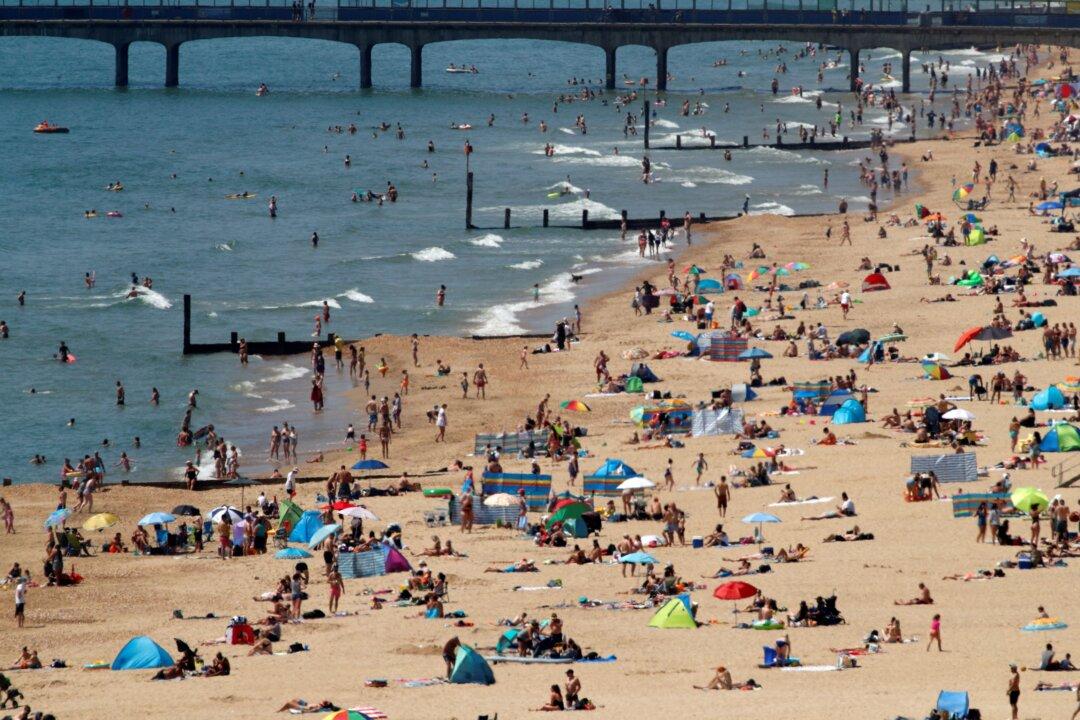UK lifeguards say they have rescued a group of 17 people who were swept out to sea in a very rare flash rip current by Bournemouth Pier over the bank holiday.
Lifeguards had spotted a large group people in the sea around midday on Aug. 30 and decided to just make a routine check and to give advice.





